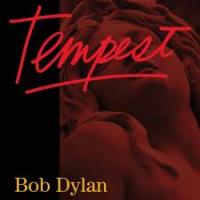No, Your Midrange Driver Is Not Blown! That's What's Left of Bob's Voice
How can Dylan's voice matter now when it didn't all those years ago? It's ironic that some critics complain about the voice now because that's what other critics did back then. They are misguided now as they were then.
The album opens with a short Eddie Lang-like western-swing guitar shuffle mixed to sound like an old 78rpm shellac that will cue expectations among listeners to "Bob Dylan's Theme Time Radio Hour" wherein Dylan picks a theme and plays related music as in "Hi. Welcome to Theme Time Radio Hour. Today's theme is hydraulics. First we'll hear Elvis Costello with "Pump It Up" followed by Freddie Mercury and David Bowie with "Under Pressure. That will be followed by songs from dead artists you've never heard of before and will not want to hear from again...."
Ah, but I kid Bob! I love that show.
Backed by his road band of Tony Garnier on bass, George G. Riceli on soft/shuffle drums, Donnie Herron on various string instruments, Charlie Sexton and Stu Kimball on guitar plus Los Lobos's David Hidalgo on guitar, accordion and violin,Tempest covers even more musical root genres than Bob does on his radio show: swing, Chicago Blues, country, folk and Doo Wop, producing a musical melange that is always exhilarating and fresh.
Dylan the old goat, Dylan the sly fox, Dylan the alter cocker, Dylan the mischievous school kid, Dylan the admonisher, Dylan the teller of truths and the chronicler of life's tragedies and triumphs are all present. If you need proof that Dylan remains the premier story teller of the second half of the 20th Century and beyond, you will find it here, within the ragged and wrinkled confines of Dylan's blown out vocal cords.
It's not about the qualities of the voice now nor has it ever been. It's about the attitude behind the voice and despite the further limitations of age, the twinkle in his eyes can be seen in his voice.
Dylan still turns mean phrases and this album is strewn with them. For instance on the Howlin' Wolf influenced "Narrow Ways" he growls "If I can't work up to you, you'll surely have to work to me some day."
There's a song about John Lennon's assassination (the album closer, "Roll On John"), one about racism and the legacy of our slavery background and of course the title tune, an epic about The Titanic. If you thought that subject is played out, you'll change your mind after hearing Dylan's almost 15 minute telling in a waltz setting. Racism, mortality, murder, suicide, God and sex.
While this may sound grim, the album is sprinkled with humor and levity as Dylan tells his stories from a mountain top of age and experience.
Engineer Scott Litt arrays the musicians in an expansive, somewhat distant semicircle, keeping everything on the soft side. Dylan's voice is front and center and mixed well forward in the mix, the ragged edges well focused and defiant with just a taste of reverb, allowing you to revel in every tiny nuance of Dylan's delivery. This is a good thing because much of what's most effective in Dylan's phrasing is what he imparts in the near silent trail-offs. The level says "throw away" but don't be fooled. Listen in and you will be rewarded.
How this album was recorded and mixed and what resolution the source used to cut the LPs really doesn't matter. The sound is rich, warm, 3D spacious and appropriately reverberant.
The double LP set is nicely packaged with two full color glossy inner sleeves, one of which shows Dylan defiantly taking a puff from a big cigar. What a punk!
The 180g Record Industry Dutch pressing quality is outstanding. You also get the full album on CD. So between the music, the sound and the packaging this is a worthy, vital Dylan album fifty years after his debut. Amazing. Dylan showed '60s youth how to move beyond the rigidity of the 1950's and now he's showing that same generation (and younger ones too) how to move gracefully and vibrantly into old age.
If this album, if Dylan's voice doesn't move you, even on the maudlin "Roll on John" that quotes Lennon lyrics, you are putting up fierce resistance. Why bother? The Lennon song should bring you to tears.




